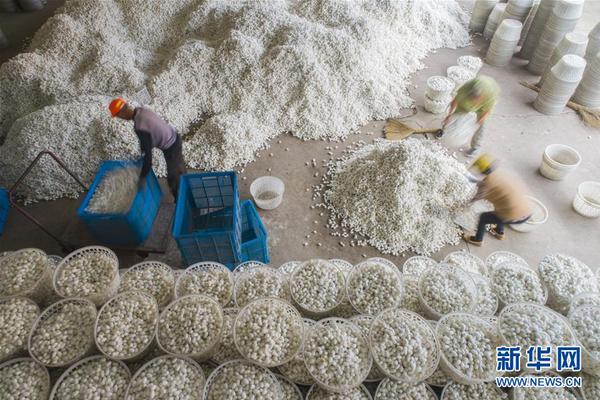Reduced kidney function refers to a decline in the kidneys' ability to filter waste and Kidney trouble with kidney supplementsexcess fluids from the blood, a crucial function for maintaining overall health. It can result from various underlying health conditions and is a progressive issue that requires careful management and attention. If left unaddressed, reduced kidney function can lead to more serious conditions, including kidney failure, which demands life-saving treatments such as dialysis or even a kidney transplant.
What Causes Reduced Kidney Function?
Kidneys are essential organs that filter toxins, regulate blood pressure, balance fluids and electrolytes, and produce hormones necessary for red blood cell production. When kidney function decreases, it means that these vital processes are no longer being performed optimally, which can lead to a variety of symptoms. The primary causes of reduced kidney function can include:
Diabetes: Chronic high blood sugar can damage the small blood vessels in the kidneys, making it harder for them to perform their filtering role. Over time, this damage can lead to diabetic kidney disease, a leading cause of kidney failure.
High Blood Pressure (Hypertension): Uncontrolled high blood pressure can also strain the kidneys, damaging their blood vessels and preventing proper filtration of waste products.
Glomerulonephritis: This refers to inflammation of the kidney's filtering units, which can impair their ability to work. It may be caused by infections, autoimmune diseases, or other health conditions.
Polycystic Kidney Disease: This genetic condition leads to the growth of fluid-filled cysts in the kidneys, which can interfere with their ability to function properly.
Obstructions: Conditions such as kidney stones or enlarged prostate can block the flow of urine, leading to kidney damage.
Age: As people age, kidney function naturally declines. The risk of developing reduced kidney function increases with age, especially if there is a history of conditions like hypertension or diabetes.
How Can You Detect Reduced Kidney Function?
Often, reduced kidney function doesn’t show noticeable symptoms until it has progressed to a more advanced stage. That's why regular check-ups are important, especially if you're at high risk. Early detection is key to preventing further damage. Some common signs to watch out for include:
Fatigue: Feeling unusually tired, even after a good night’s rest, can be a sign of kidney problems.
Swelling: Reduced kidney function can cause fluid retention, leading to swelling in the ankles, feet, or around the eyes.
Changes in Urine: If you notice that your urine is darker or has blood in it, or if you urinate more or less frequently than usual, it could indicate kidney problems.
Shortness of Breath: Kidney issues can cause fluid buildup in the lungs, leading to difficulty breathing.
High Blood Pressure: Since the kidneys play a crucial role in regulating blood pressure, high blood pressure could be both a cause and a result of kidney problems.
Nausea and Vomiting: As toxins build up in the body due to kidney failure, nausea and vomiting can occur.
The Stages of Kidney Disease
Kidney function is measured using the glomerular filtration rate (GFR), a test that estimates how much blood passes through the kidneys each minute. The lower the GFR, the worse the kidney function. Kidney disease is classified into five stages, ranging from mild impairment to kidney failure:
Stage 1: Normal or slightly decreased kidney function (GFR ≥ 90)
Stage 2: Mild kidney damage (GFR 60-89)
Stage 3: Moderate kidney damage (GFR 30-59)
Stage 4: Severe kidney damage (GFR 15-29)
Stage 5: Kidney failure (GFR < 15), requiring dialysis or a transplant.
It's important to catch kidney disease early to prevent it from advancing to later stages. The earlier you intervene, the more likely you are to manage the condition effectively and maintain kidney health.
Preventing and Managing Reduced Kidney Function
While some causes of reduced kidney function, such as genetics or age, can’t be avoided, there are many lifestyle changes and treatment options that can help prevent kidney disease or manage its progression.
Control Diabetes and High Blood Pressure: If you have diabetes or hypertension, it's crucial to keep them under control. Regular monitoring of blood sugar levels and blood pressure, along with medications and lifestyle adjustments, can protect your kidneys.
Healthy Diet: Eating a kidney-friendly diet rich in fruits, vegetables, and whole grains can support kidney function. Avoid excessive salt, processed foods, and foods high in phosphorus and potassium if you're in the later stages of kidney disease.
Stay Hydrated: Proper hydration helps the kidneys filter waste effectively. However, if you already have reduced kidney function, consult your doctor to determine the right amount of water you should consume.
Exercise Regularly: Regular physical activity helps maintain a healthy weight and supports cardiovascular health, both of which are important for kidney function.
Avoid Smoking and Excessive Alcohol: Smoking and excessive alcohol consumption can both damage the kidneys and exacerbate existing kidney problems.
Reduced kidney function is a serious condition that can lead to severe complications if not managed properly. While there is no cure for some causes of kidney disease, early detection, proper management, and lifestyle changes can help protect your kidneys and prevent the progression of the disease. Regular check-ups, a balanced diet, and healthy lifestyle habits play a vital role in maintaining kidney health and overall well-being.
Treatment Options for Reduced Kidney Function
When kidney function declines to a critical level, treatment becomes necessary to manage the condition. The treatment options available depend on the stage of kidney disease and the underlying causes. Here are some of the most common treatments:
Medications: For those with early to moderate kidney disease, medications may be prescribed to help control symptoms and prevent further damage. For example, medications to manage high blood pressure or diabetes are essential in reducing kidney strain. Additionally, medications that reduce protein in the urine or address fluid retention can also be beneficial.
Dialysis: If kidney function deteriorates significantly (usually at Stage 4 or 5), dialysis may become necessary. Dialysis is a treatment that helps filter waste and excess fluids from the blood when the kidneys can no longer do so. There are two types of dialysis: hemodialysis and peritoneal dialysis. Hemodialysis involves using a machine to filter the blood, while peritoneal dialysis involves using the lining of the abdomen to filter waste.
Kidney Transplant: In cases of end-stage kidney failure, a kidney transplant may be the only viable option. A transplant involves replacing the damaged kidney with a healthy one from a donor. However, not all patients are eligible for a transplant, and the process involves a long waiting list and rigorous post-surgery care to ensure the transplant succeeds.
Lifestyle Changes and Diet Modifications: Even if medication or dialysis is needed, making lifestyle changes is a critical aspect of managing reduced kidney function. Following a kidney-friendly diet, exercising, and avoiding harmful substances are all part of a holistic approach to treatment. For example, patients with kidney disease often need to limit their intake of sodium, potassium, phosphorus, and protein to reduce the workload on the kidneys.
Managing Underlying Conditions: Treating the root cause of kidney damage, whether it’s high blood pressure, diabetes, or an autoimmune disorder, can significantly improve kidney function and prevent further decline. In some cases, addressing the primary condition can even slow or stop the progression of kidney disease.
Coping with the Emotional Impact of Kidney Disease
Being diagnosed with reduced kidney function can have an emotional toll. Patients often experience anxiety, depression, or stress as they grapple with the reality of managing a chronic illness. Support groups, therapy, and talking openly with family members can help in coping with the emotional strain. It's important to acknowledge the emotional aspects of kidney disease and seek professional help if needed.
Conclusion: Protecting Your Kidneys for a Healthier Future
Reduced kidney function is a condition that requires careful attention and proactive management. By understanding the causes, recognizing the symptoms, and taking steps to prevent or manage the disease, individuals can significantly reduce their risk of developing more serious kidney issues. Regular medical check-ups, a healthy lifestyle, and medications are crucial components in maintaining kidney health. With early intervention and the right treatments, it's possible to live a healthy, fulfilling life, even with reduced kidney function.
(责任编辑:综合)
 Discovering the Best Tea: A Journey Through Flavors, Benefits, and Brewing Techniques
Discovering the Best Tea: A Journey Through Flavors, Benefits, and Brewing Techniques Overcoming the Struggle: Understanding and Managing the Impact of Not Sleeping Well
Overcoming the Struggle: Understanding and Managing the Impact of Not Sleeping Well What to Drink to Nourish Your Kidneys: The Ultimate Guide to Kidney Health
What to Drink to Nourish Your Kidneys: The Ultimate Guide to Kidney Health Embracing Physical Aging: The Journey of Grace and Wisdom
Embracing Physical Aging: The Journey of Grace and Wisdom Understanding the Power of Anger: The Unspoken Strength of an Angry Woman
Understanding the Power of Anger: The Unspoken Strength of an Angry WomanThe Struggle of Being Tired: A Deep Dive into Exhaustion and How to Combat It
 The Silent Struggle: Understanding the Roots of ExhaustionWe all know the feeling. You wake up in th
...[详细]
The Silent Struggle: Understanding the Roots of ExhaustionWe all know the feeling. You wake up in th
...[详细]The Art of Tea: A Journey Through the World of Flavors
 The Magic of Tea – A Sip of History and TraditionTea is more than just a beverage; it is a cultural
...[详细]
The Magic of Tea – A Sip of History and TraditionTea is more than just a beverage; it is a cultural
...[详细]What to Eat for Kidney Deficiency: Nourish Your Body the Right Way
 Understanding Kidney Deficiency and the Role of DietKidney deficiency is a condition where the kidne
...[详细]
Understanding Kidney Deficiency and the Role of DietKidney deficiency is a condition where the kidne
...[详细]Celebrate Love and Flavor: The Ultimate Guide to Gay Drinks
 Sure! Here's a soft article on the theme "Gay Drinks." The article is broken into two parts as reque
...[详细]
Sure! Here's a soft article on the theme "Gay Drinks." The article is broken into two parts as reque
...[详细]What is the Best Thing to Eat?
 Discovering the Delights of FoodFood is one of life's greatest pleasures, a universal experience tha
...[详细]
Discovering the Delights of FoodFood is one of life's greatest pleasures, a universal experience tha
...[详细]Understanding Why Legs Are Weak and How to Strengthen Them
 Weak legs can significantly affect your daily life, limiting mobility, strength, and endurance. This
...[详细]
Weak legs can significantly affect your daily life, limiting mobility, strength, and endurance. This
...[详细]The Art of Body Care: Elevating Your Daily Routine
 Sure! Here's a 1400-word soft article with "body care" as the theme, split into two parts. The Esse
...[详细]
Sure! Here's a 1400-word soft article with "body care" as the theme, split into two parts. The Esse
...[详细]Understanding Kidney Deficiency: A Key to Better Health and Vitality
 Kidney deficiency is a concept rooted in traditional Chinese medicine (TCM) that refers to a weakene
...[详细]
Kidney deficiency is a concept rooted in traditional Chinese medicine (TCM) that refers to a weakene
...[详细]Reigniting Passion: How to Address a Dissatisfied Sex Life
 Struggling with dissatisfaction in your sex life is more common than you think, and it’s important t
...[详细]
Struggling with dissatisfaction in your sex life is more common than you think, and it’s important t
...[详细]What to Eat for Kidney Deficiency: Nourish Your Body the Right Way
 Understanding Kidney Deficiency and the Role of DietKidney deficiency is a condition where the kidne
...[详细]
Understanding Kidney Deficiency and the Role of DietKidney deficiency is a condition where the kidne
...[详细]Understanding the Pain of Urination: Causes, Remedies, and Prevention

The Art of a Fulfilling Sex Life: Embracing Passion and Connection
